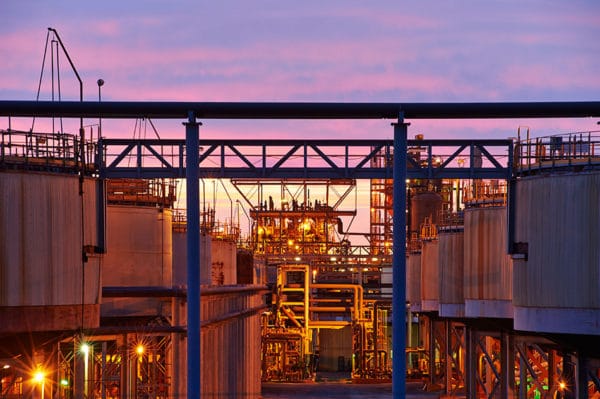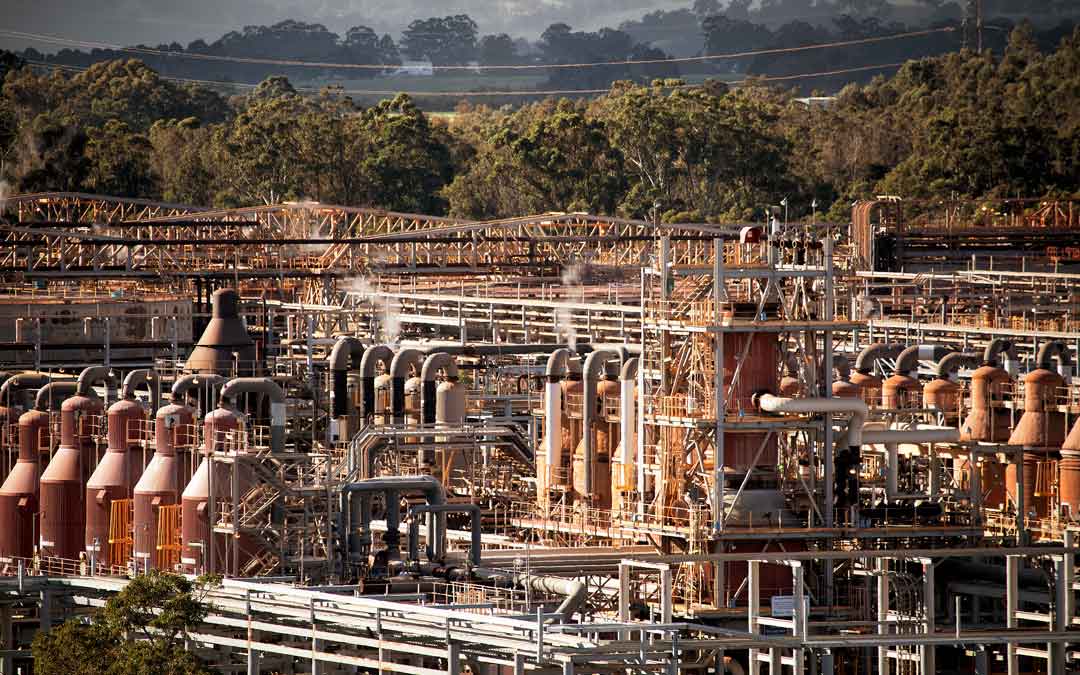Alcoa plans to install a 4 MW Mechanical Vapour Recompression (MVR) module to be powered by renewable energy at its Wagerup alumina refinery south of Perth in Western Australia. The technology, which recycles waste steam that would otherwise be released into the atmosphere, is said to tackle the most emissions-intensive stage of refining alumina.
Construction is expected to begin on the project mid-year and is slated to be operational in 2024.
The decision to move ahead with the technology was informed by a successful feasibility study, into which the Australia Renewable Energy Agency (ARENA) contributed $11.3 million (USD 7.8 million).
The study found that once the capital costs of switching to Mechanical Vapour Recompression (MVR) have been met, it is significantly cheaper than current methods for making steam. In some refineries, the upfront costs of MVR are even cheaper than conventional evaporation, ARENA said.
Alcoa is planning to purchase renewable energy from the market with Large-Scale Generation Certificates (LGCs), rather than developing its own generation project, a spokesperson for the company told pv magazine Australia.

Image: Alcoa
Decarbonising alumina industries
Australia is the world’s largest exporter of alumina and the industry accounts for roughly 3% of the country’s total annual emissions, using more than twice the energy consumed by Tasmania.
In 2022, ARENA published the Roadmap for Decarbonising Australian Alumina Refining. Developed by Deloitte, the report found that deploying four technologies could cut emissions at Australian alumina refineries by as much as 98%.
Of these four technologies, MVR tackles the most emissions intensive stage of refining, it said.
Vapour recompression via MVR is a way to upgrade energy by compressing lower pressure vapour up to a higher pressure. The process is itself a refinement of the proposition that renewables could be harnessed to produce the high-pressure steam needed to remove residues and solids from bauxite to produce alumina, the feedstock for aluminium.
While the results of the feasibility study into deploying MVR technology in Australia are promising, the move will require vast amounts of renewable generation.
Alcoa’s feasibility study found that it would take 1.2 GW of firmed renewables for all of Australia’s alumina refineries to adopt renewable MVR.
This content is protected by copyright and may not be reused. If you want to cooperate with us and would like to reuse some of our content, please contact: editors@pv-magazine.com.









By submitting this form you agree to pv magazine using your data for the purposes of publishing your comment.
Your personal data will only be disclosed or otherwise transmitted to third parties for the purposes of spam filtering or if this is necessary for technical maintenance of the website. Any other transfer to third parties will not take place unless this is justified on the basis of applicable data protection regulations or if pv magazine is legally obliged to do so.
You may revoke this consent at any time with effect for the future, in which case your personal data will be deleted immediately. Otherwise, your data will be deleted if pv magazine has processed your request or the purpose of data storage is fulfilled.
Further information on data privacy can be found in our Data Protection Policy.